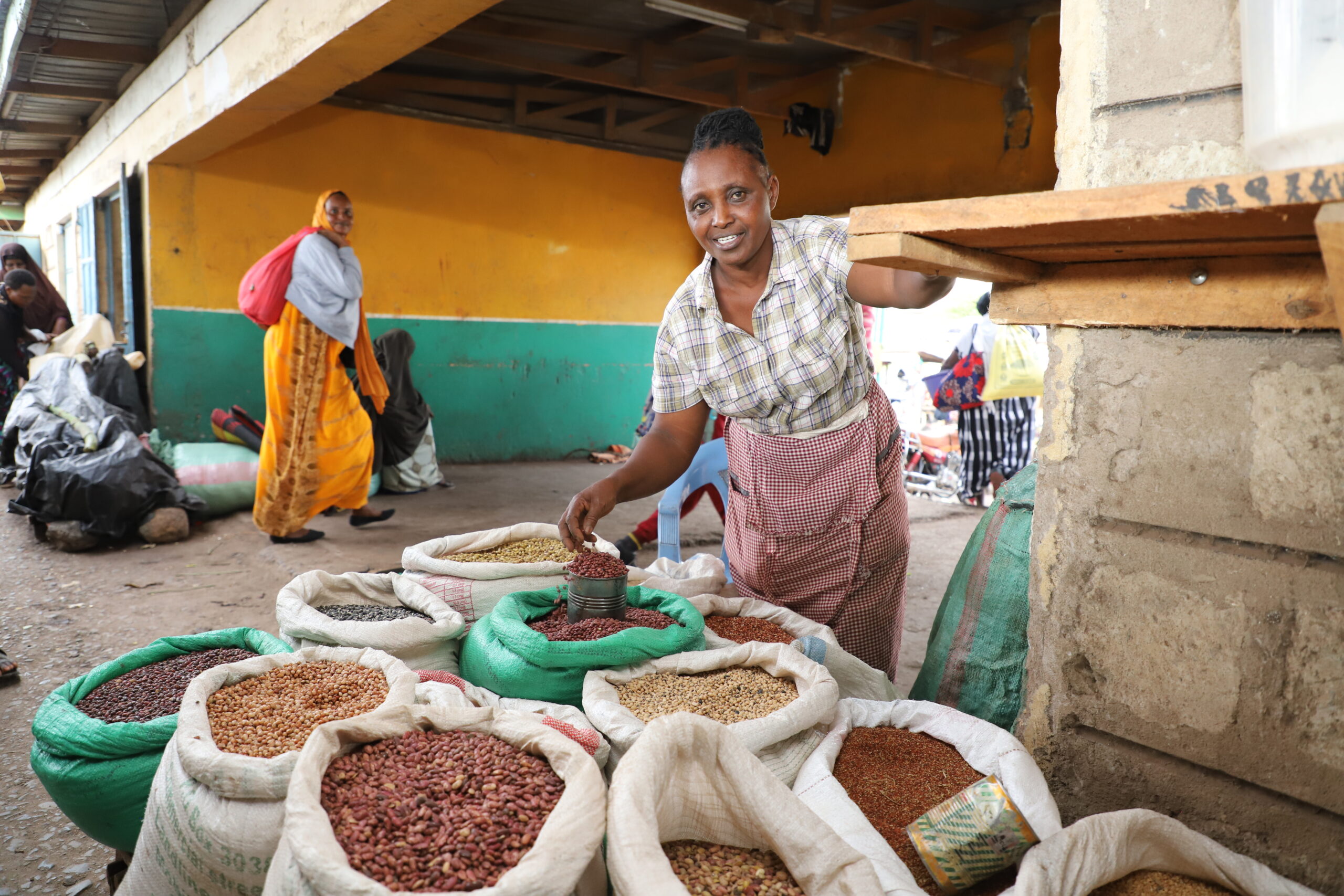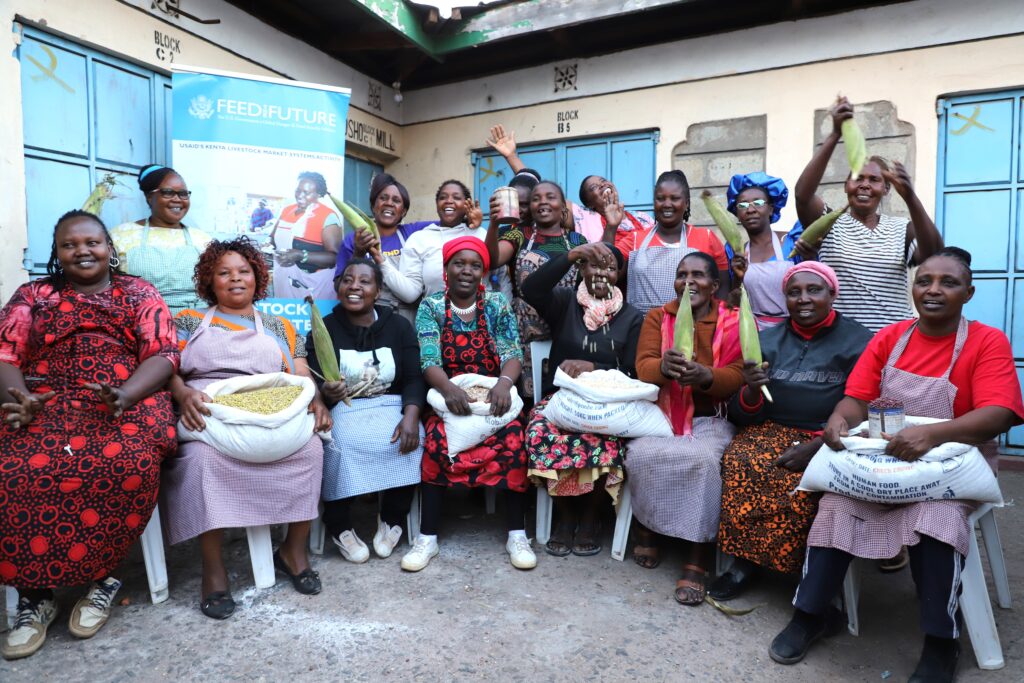
The residents of Isiolo County, in Northern Kenya, rely primarily on livestock production for their livelihoods. The county has 26 markets (11 food markets and 15 livestock markets), which provide jobs and a diverse range of products for its 268,002 residents.
For cereals and fresh produce, which are crucial for the nutritional well-being of the community, traders depend on neighboring counties, such as Nyeri, Laikipia, Kirinyaga, Murang’a, and Meru.
Emily Karamuta is a cereal trader who operates from the Isiolo Fresh Produce Westgate Market in the town center. Emily’s dream is for her three children to acquire a good education and become successful in life. As the market’s chairperson, Emily represents traders and advocates for peace among stakeholders, who sometimes have conflicts over issues like increased market fees imposed by the county government.
Over her 38-year career, she has faced significant challenges, including the market burning down on four occasions, resulting in property loss. Most recently, the biggest obstacle to the expansion of her business was the rising cost of living, caused by the Ukraine crisis that led to slow business. Poor harvests due to drought and erratic weather patterns in Northern Kenya further exacerbated the situation, leading to limited access to farm inputs. This affected farmers’ outputs. Emily sometimes struggled to access staple commodities like maize and beans.
In 2023, the Feed the Future Kenya Livestock Market Systems Activity, funded by USAID and implemented by ACDI/VOCA, stepped in with an economic stimulus of $153,987 for 994 traders operating in Isiolo County to help mitigate the effects of drought and the global food crisis. At the Isiolo Fresh Produce Westgate Market, 30 traders (27 women and three men), including Emily, benefited from the support, enabling them to source fresh produce and cereals from the neighboring counties. Emily received $332 (KES 50,000), which she used to buy additional stock of maize, green grams, and beans. This boost in inventory enabled her to make more sales, increasing her daily income from $27 to approximately $60.
“This is the first time that traders in this market have received any form of economic stimulus,” Emily said. “USAID did well to reach us with cash support. We are incredibly happy, and we can now confidently increase our stock and look forward to better market prices.”

This additional income is helping Emily provide food for her six family members and education fees for her children. She envisions expanding the variety of cereals she offers and increasing her stock to include other commodities like lentils. As a market leader, she is mentoring other youth, including her oldest daughter, in the cereals trade. However, Emily’s biggest challenge remains the expansion of her business, which is impeded by the constant increase in the cost of living. The cash transfer has not only made expansion possible but also boosted market activity and increased revenue for the county government. In the absence of this cash transfer, some businesses were on the brink of closure.
In October 2023, Emily participated in a training for market leaders provided by the Activity. on subjects like leadership, conflict management, food safety and hygiene, and financial management. The Activity introduced participants to the Chamber of Commerce and Industry, whose representatives highlighted the advantages of membership, such as increased business exposure, trade opportunities, networking with like-minded individuals, and collective advocacy for policies supporting economic growth. Participants committed to sharing the training with other market operators. Furthermore, because of the training, market leaders pledged to establish a savings and credit cooperative to provide traders with easy access to loans, marking the first of its kind within the market.
In the counties of Garissa, Isiolo, Marsabit, Samburu, Turkana, and Wajir, the Activity has provided cash transfers totaling $648,402 to support 4,195 small-scale traders, including 2,999 women and 1,196 men. This support has benefited 300,000 people out of a target population of 561,534, allowing them access to both food and non-food items. The support also increased trader incomes by at least 25 percent, ensuring that their businesses remain afloat.
Learn more about the Activity.
Learn more about our work in Kenya.
Watch news coverage from KBC News about the Westgate Fresh Produce Market.








